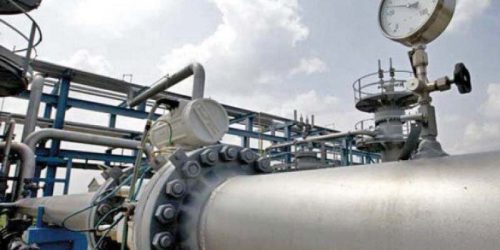ISLAMABAD: In a new development, one of the leading private players in the LNG sector, the PGPCL (Pakistan Gas Port Limited), has sought allocation of pipeline capacity for transmission of 150mmcfd of RLNG on a three-month rolling basis.
The PGPL has written a letter to OGRA, seeking the pipeline capacity allocation keeping in view the latest decision taken by the Cabinet Committee on Energy (CCOE) on February 4, 2021. The CCOE decided that in order to provide fair and level playing field to the new LNG terminal, the existing available capacity in the pipeline will be allocated to any applicant, meeting the requisite criteria for three-month rolling basis till such time the new terminals achieve commercial operations date (CoD).
As per the letter to OGRA, the Pakistan GasPort Limited (PGPL), the owner of PGP Consortium Limited (PGPC), has placed the request seeking for the pipeline allocation capacity of 150mmcfd on a three-month rolling and on a take-or-pay basis.
The letter also mentions that the agreement will become operative on 30th day after the Third Party Access (TPA) Rules are finalized and the draft of Inter-User Agreement (IUA) are approved by the government. In the letter, PGPC LNG Terminal clearly says that it has an additional capacity of 150mmcfd, after meeting its contractual obligation to Pakistan LNG Terminals Limited (PLTL), now Pakistan LNG Limited (PLL).
Interestingly, the government has not so far apprised the LNG players in the private sector about the prerequisites needed to be met by any applicant. However, the PGPCL management says that since it has FSRU (floating storage regasification unit) and LNG terminal, having additional capacity of 150mmcfd and that are the prerequisites it has to meet. That’s why it has submitted an application to OGRA for allocation of pipeline capacity.
And more importantly, the government has so far not succeeded in finalizing the Third Party Access (TPA) rules as in the absence of TPA rules it is quite hard for the private sector to play its role in supplying LNG to private consumers at competitive prices.
As far as the Inter-User Agreement (IUA) is concerned, its draft has not been finalized too, showing how lethargic the government or state owned companies are in their decisions. In the absence of TPA rules and Inter User Agreement, the LNG imports by the private sector are simply not possible.
In November 2020, Pakistan LNG Terminal Limited (PLTL) and Pakistan LNG Limited (PLL) had refused to finalize the Inter-User Agreement (IUA), making the private LNG imports impossible knowing the fact that the private sector alone can solve the gas crisis and solve it fast by utilizing the unused capacity of the government and 150mmcfd additional capacity of PGPCL terminal. Since then, there is no positive progress in finalising the IUA.
More importantly, the official said the-then PLTL, which has now merged with Pakistan LNG Limited (PLL), had rather sought a mammoth amount of $18 million per annum as compensation from the Pakistan Gas Port Company (PGPC) simply for the right to allow the PGPC terminal to bring in private sector LNG imports.
The PGPCL has contracted with PLTL for only 600mmcfd and beyond that is the private excess capacity, which the PGPC is committed to utilize to bring cheaper LNG cargoes than at the prevailing notified OGRA price. However, the red tapism in state-owned companies is hampering the way for the PGP Terminal to become a multi-user terminal, which is a practice globally at LNG import terminals where borrowing and lending of molecules is as per standard international agreements.
However, the PLL says it has already floated the advertisement for use of PLL’s idle terminal capacity by the private sector, in line with the decision of the ECC and cabinet.







